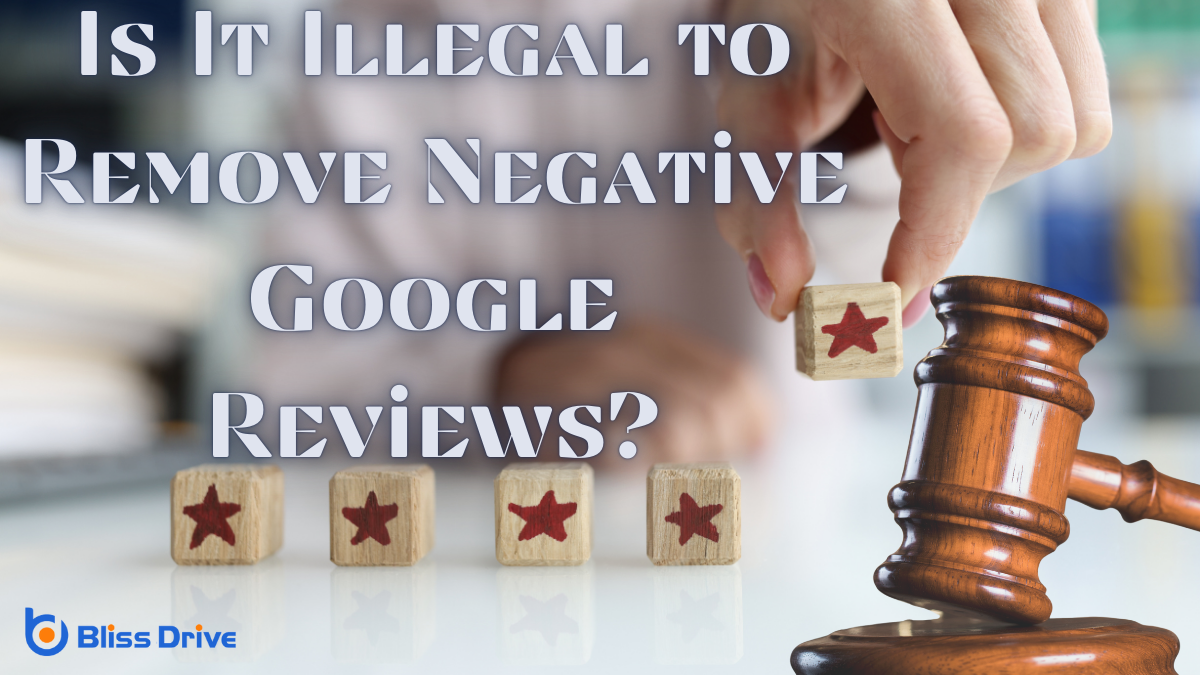Learn More About Us

As I explore the question of whether it's illegal to remove negative Google reviews, I find myself traversing a nuanced landscape. Reviews are generally protected under free speech, but there are specific instances where removal is justified, such as when they violate Google's guidelines. This raises intriguing questions about the balance between maintaining a business's credibility and respecting customers' voices. Let's consider what steps businesses can take when faced with negative feedback.
When dealing with online reviews, it’s vital to understand Google's review policies to navigate the system effectively.
I've found that Google aims to guarantee reviews are authentic and unbiased. They prohibit fake reviews, conflicts of interest, and inappropriate content. You can't just remove a negative review unless it violates these guidelines.
To report a review, you need to flag it and provide a reason, such as if it's spam or irrelevant. Google's team will then evaluate your claim.
Remember, they won't remove negative reviews just for being negative. It’s important to focus on responding professionally and resolving any issues instead.

Although negative reviews can feel like a personal attack, they greatly impact a business's reputation and bottom line. When potential customers see too many unfavorable comments, they might choose to go elsewhere.
I understand how frustrating it can be, but negative reviews can also provide valuable insights. They highlight areas where a business can improve, turning criticism into an opportunity for growth.
Responding to reviews professionally can show potential customers that the business cares about its clients and is committed to improvement. In this digital age, online reviews hold significant power. A single negative review might sway a customer’s decision, affecting sales and brand perceptionHow consumers view and interpret a brand's image and identity..
It's essential for businesses to address and manage these reviews thoughtfully and constructively.
Before considering the removal of negative reviews on Google, it’s crucial to understand the legal landscape surrounding this action. First, I need to recognize that reviews are protected under free speech. Removing them without a valid reason can sometimes leadA potential customer referred by an affiliate who has shown interest in the product or service but h... to legal consequences.
If a review is defamatory or false, I might have legal grounds to request its removal. However, I should be cautious and verify that my claims are verifiable. Filing false complaints or attempting to manipulate reviews can backfire legally.
Furthermore, Google's guidelines allow for the removal of reviews that violate its policies, such as those containing hate speech or spam. Consulting a legal expert can provide clarity and make sure that any steps I take are within the law.
Maneuvering through the legal landscape is only half the battle; understanding the ethical implications of deleting reviews is equally important.
I often ask myself, "Is it fair to silence a customer's voice?" Reviews, both good and bad, offerThe specific product or service being promoted by affiliates. valuable insight that can help a business grow and improve.
Removing negative reviews might seem like an easy fix, but it could mislead potential customers and damage credibility. Trust is built on transparency.
By only showcasing positive feedback, I risk presenting a skewed image of my business. Ethical integrity demands honesty, even when it’s uncomfortable.
Instead of deletion, addressing the concerns raised in negative reviews can demonstrate accountability and commitment to improvement, which, in the long run, might foster more genuine trust.

Addressing false or defamatory reviews involves a few careful steps to guarantee that you're protecting your business's reputation without overstepping legal boundaries.
First, I carefully assess the review's content for inaccuracies or defamatory remarks. If it's false, I gather evidence that supports my claim.
Next, I contact Google through their review reporting system, providing a clear explanation and any supporting documentation. It's essential to remain objective and professional throughout this process.
If Google doesn't remove the review, I will consider reaching out directly to the reviewer. Sometimes, a polite request for clarification can resolve misunderstandings.
When dealing with negative feedback, it's essential to view it as an opportunity for growth rather than a setback. I often remind myself that every critique can lead to improvement.
First, I listen actively to what's being said, ensuring I fully understand the concerns. This way, I can address them effectively. Responding promptly and professionally shows you care about your customers' experiences.
I also find it helpful to express gratitude for the feedback, regardless of its nature. This approach can turn a negative experience into a positive interaction.
Additionally, I focus on implementing necessary changes to prevent similar issues in the future. By doing so, I not only enhance my service but also build stronger, more trusting relationships with my customers.
In maneuvering the world of Google reviews, it’s essential to remember that you can’t just delete negative feedback without a valid reason. Instead, focus on understanding Google's policies and addressing concerns transparently. By tackling false or defamatory reviews appropriately and engaging with genuine feedback constructively, you strengthen your business's credibility. Remember, handling criticism ethically not only avoids legal issues but also builds trust with your audience, ultimately benefiting your business in the long run.
